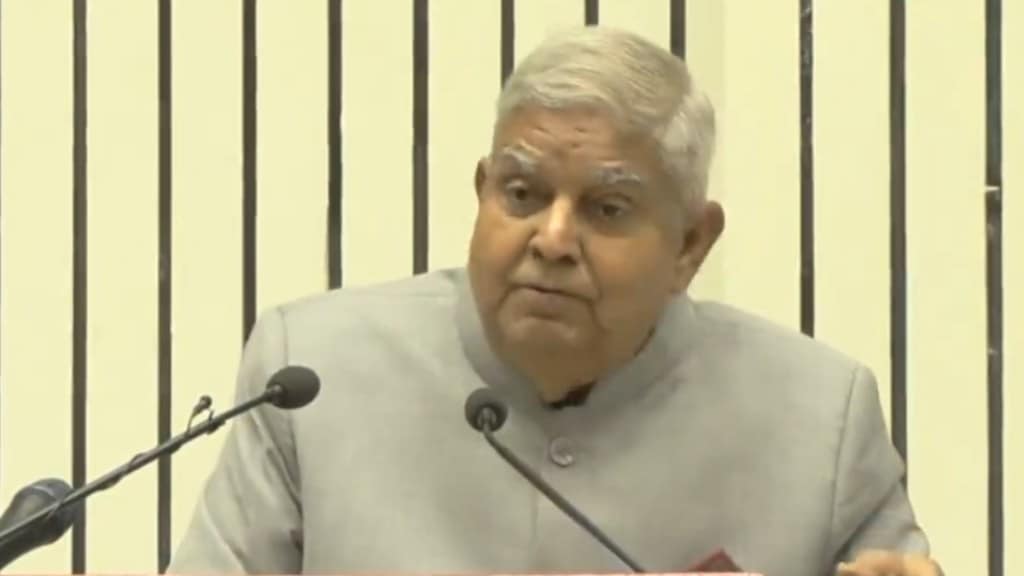Vice President Jagdeep Dhankhar today urged everyone to make a commitment to educate at least one person. “When we make someone literate, we empower them. We help them discover themselves, restore their dignity, reduce dependence, and foster both independence and interdependence. It enables individuals to help themselves. This is a supreme act of handholding,” he remarked.
Addressing the International Literacy Day celebrations at Vigyan Bhawan, New Delhi, as the Chief Guest, the Vice President emphasised, “The joy you bring by educating someone—whether a man, woman, child, or girl—is immeasurable. It brings immense happiness and spreads positivity. It is the greatest affirmative action one can take in Human Resource Development.”
In his speech, he called for a collective push towards literacy, noting, “We must adopt a mission-driven approach with commitment and passion to achieve 100% literacy at the earliest. I believe this can be realised sooner than we think. If each of us makes one person literate, we will make a critical contribution to building a Viksit Bharat.”
He further asserted, “Education is something that no thief, government, or even relatives can take away from you. It only grows as long as you continue to share it.” Shri Dhankhar also expressed confidence that if pursued passionately, India can reclaim its ancient status as a global centre of learning, like Nalanda and Takshashila.
Appealing to the states that are yet to adopt the National Education Policy (NEP), he urged them to reconsider, calling it a game-changer for the nation. “This NEP empowers our youth, enabling them to fully tap into their talent and energy, while giving importance to all languages,” he noted.
Highlighting the importance of the mother tongue, Dhankhar stated that it is the language in which we dream. He also celebrated India’s unmatched linguistic diversity, saying, “There is no country like India, with its wealth of languages. We are a unique nation in this regard.”
Dhankhar also emphasised the significance of the Rishi tradition in Indian culture and urged everyone to resolve to educate at least one person within six months, so that by year’s end, two individuals could be educated.
He praised India’s transformative progress over the last decade, highlighting achievements such as electrifying every household—once unimaginable—and future ambitions of self-sufficiency through solar power. He underscored advancements in rural development, including universal access to household toilets and widespread digital connectivity. Shri Dhankhar noted how 4G access in remote villages has revolutionised service delivery, eliminating the need for long queues for essential services.
In conclusion, he cautioned against those who tarnish and undermine the country’s institutions, urging the need to guide those who fail to recognize Bharat’s impressive growth and the ground realities of its progress.

